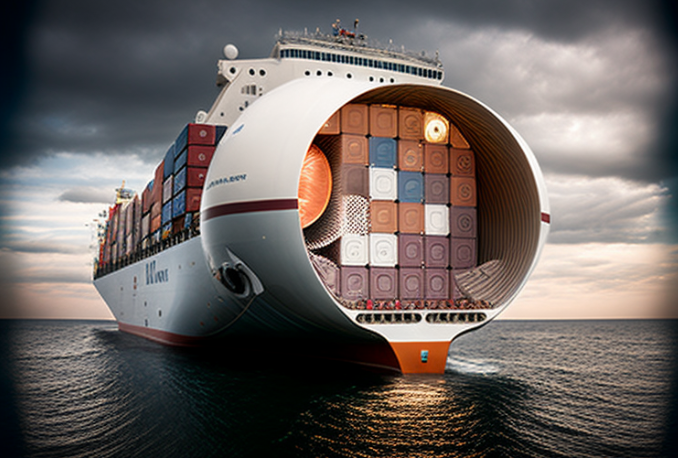Cargo ships are an efficient way to transport goods between China and the USA
Cargo ships have long been an important part of international trade, and they remain so today. For goods moving between China and the United States, cargo ships are an efficient and cost-effective way to transport goods. Cargo ships are large vessels that can carry thousands of tons of cargo in containers. The containers are sealed and loaded onto the ship at the port of origin, and then unloaded at the destination port. This process is quick and efficient, allowing goods to travel across oceans and continents in a matter of days. The cost of shipping goods by cargo ship is typically much lower than other forms of transportation. This is because of the economies of scale. A single cargo ship can carry as much as 10,000 containers, which is much more than a truck or train could carry. The cost per unit of cargo is thus much lower than other forms of transportation. Another advantage of cargo ships is that they are relatively safe and secure. Since the containers are sealed, there is little risk of theft or damage to the goods. This makes cargo ships a reliable way to transport goods over long distances.
Cargo ships provide an economical shipping option, allowing goods to be shipped over long distances at a lower cost
Cargo ships are an essential part of international trade and provide a reliable and economical way to transport goods over long distances. They are used to move a variety of goods, including raw materials, manufactured products, and food, from one place to another. Cargo ships offer many advantages over other forms of shipping. They are able to carry large amounts of goods in a single trip, meaning fewer trips are needed to transport goods. They are also able to travel to many different ports, making them a flexible and economical option for shipping goods. Furthermore, cargo ships are able to travel at a relatively low cost compared to other forms of transport, making them an economical choice for many businesses. Cargo ships are also more efficient than other forms of shipping. They are able to travel long distances without needing to refuel, meaning less fuel is used and fewer emissions are created. They are also able to travel in more extreme weather conditions than other forms of transport, making them a reliable option for shipping goods. In addition to these advantages, cargo ships are also safer than other forms of shipping. They are able to navigate the open ocean with a greater degree of accuracy than other types of ships, making them less likely to be involved in accidents.
Cargo ships must adhere to strict safety regulations to ensure the safety of crew and passengers, as well as the cargo
Cargo ships are an essential part of the global economy, carrying millions of tons of goods and commodities around the world each year. As such, cargo ships must adhere to strict safety regulations to ensure the safety of crew and passengers, as well as the cargo. The International Maritime Organization (IMO) is the United Nations body responsible for establishing and enforcing regulations for the safety of ships and their crews. The IMO’s regulations are based on the International Convention for the Safety of Life at Sea, which is an agreement between governments that sets out the minimum safety standards for ships. The IMO’s safety regulations cover a wide range of areas, including the design, construction, and operation of cargo ships. For example, the regulations require all cargo ships to be designed in such a way that they can survive in rough seas and be easily maneuvered in an emergency. They also require that cargo ships have enough lifeboats and other emergency equipment on board to evacuate all crew and passengers in the event of an emergency. The IMO also requires cargo ships to undergo regular safety inspections and maintenance, to ensure that the vessel is in good working order and meets all safety standards. The inspections also check that the vessel’s crew is properly trained and that all safety procedures are in place. In addition to the IMO’s regulations, many countries have their own requirements for the safety of cargo ships. These include regulations on the type of cargo that can be carried, the navigation of the vessel, and the communication and reporting of incidents. Cargo ships that do not adhere to safety regulations can face fines and other punishments. In extreme cases, cargo ships can also be barred from entering certain ports, or even have their license revoked. Overall, it is essential for cargo ships to adhere to strict safety regulations to ensure the safety of crew and passengers, as well as the cargo. By doing so, they help to create a safe and efficient maritime environment, allowing goods to be transported around the world quickly and securely.
Cargo ships must comply with international safety regulations and standards, including: having sufficient lifesaving equipment onboard; adhering to navigational and communication regulations; maintaining fire protection and prevention measures; providing medical care and assistance; and providing crew and passenger safety training. In addition, cargo ships must undergo regular inspections and surveys to ensure that they meet all applicable safety requirements.

